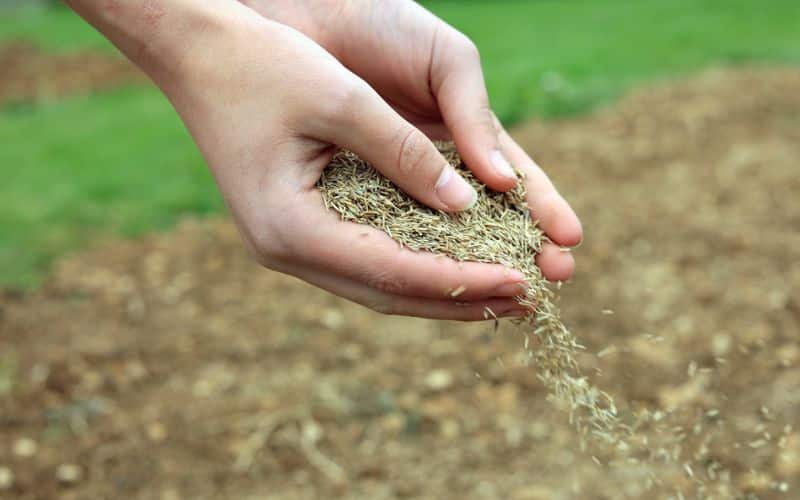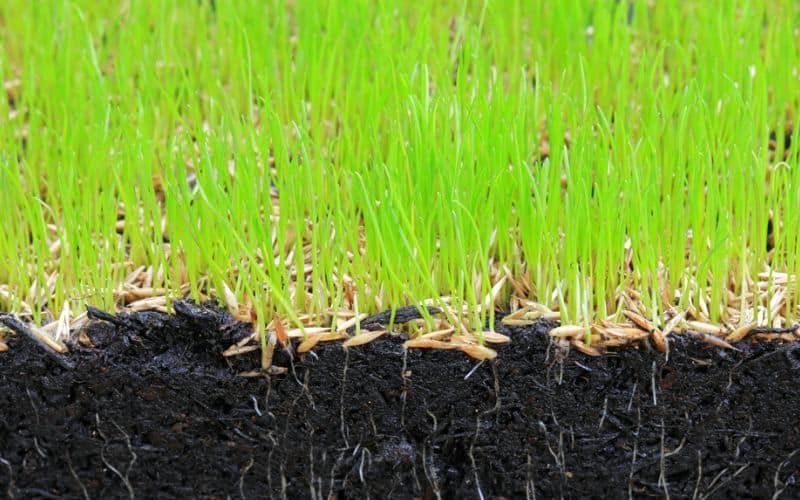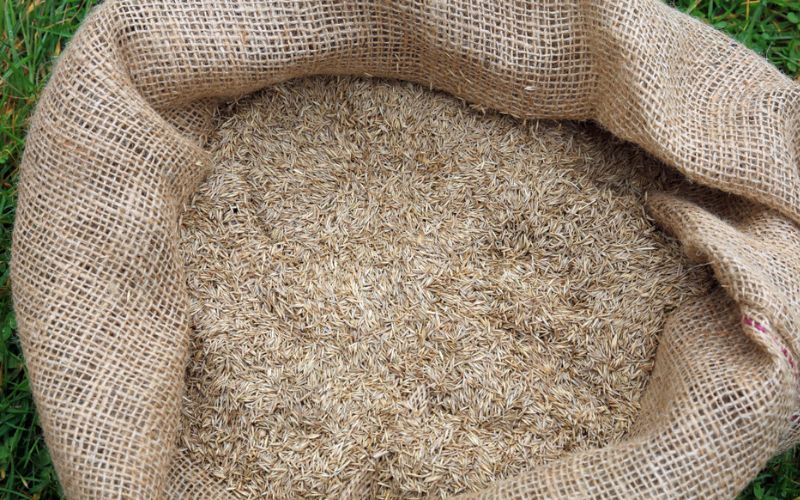
Do Grass Seeds Expire? Understanding Seed Viability
If you’re a lawn care enthusiast, you’ve probably wondered, “Do grass seeds expire?” The answer is yes and no. Grass seeds don’t “expire” in the traditional sense, but their viability or ability to germinate decreases over time. The grass seed you store today may not sprout as successfully next year, but that doesn’t mean it’s entirely useless.
How Long Does Grass Seed Stay Viable?
The longevity of grass seed depends on the seed itself and the storage conditions. Under ideal storage conditions, grass seed can remain viable for 10-18 months from the testing date. However, this doesn’t mean that all the seeds will germinate. The germination rate decreases over time, so while some seeds will germinate, others may not.
What Factors Affect Grass Seed Viability?
Several factors affect grass seed viability, including temperature, humidity, and light. Grass seed stored in a cool, dry place away from direct sunlight will maintain its viability longer than seed exposed to heat, moisture, and light. According to Oregon State University, the ideal storage conditions for grass seed are temperatures below 60°F and relative humidity below 60%.

Can Old Grass Seed Still Germinate?
Yes, old grass seed can still germinate, but the germination rate will be lower than that of fresh seed. The older the seed, the lower the germination rate. However, if you have old seed, don’t throw it away just yet. You can increase the seeding rate to compensate for the lower germination rate.
How to Check if Your Grass Seeds are Still Viable?
There are a couple of ways to check if your grass seeds are still viable. One method is the water test. Place the seeds in a container of water and let them sit for about 15 minutes. Viable seeds will sink to the bottom, while non-viable seeds will float. Another method is the germination test. Place the seeds on a damp paper towel, seal it in a plastic bag, and place it in a warm location. If the seeds are viable, they should sprout in a few days.
What Happens if You Use Expired Grass Seed?
Using expired grass seed won’t harm your lawn, but it may not give you the lush, green grass you’re hoping for. The germination rate of expired seed is lower, so you’ll likely see fewer sprouts. However, with proper lawn care, even a lawn seeded with expired seed can eventually become lush and green.
How to Store Grass Seed for Long-Term Viability?
Proper storage is key to maintaining grass seed viability. Store your seed in a cool, dry place away from direct sunlight. An airtight container in a basement or garage is ideal. Avoid storing grass seed in sheds or other outdoor buildings where temperatures can fluctuate dramatically.
Does the Type of Grass Seed Affect Its Shelf Life?
Yes, the type of grass seed can affect its shelf life. For example, ryegrass and fescue seeds have a longer shelf life than Bermuda grass or Kentucky bluegrass seeds. However, with proper storage, all types of grass seed can remain viable for a considerable period.
Can You Store Grass Seed Over the Winter?
Absolutely! Storing grass seed over the winter is a great way to ensure you have seed ready for spring planting. Just remember to store your seed in a cool, dry place to maintain its viability.
What’s the Best Way to Store Your Seed for Next Season?
The best way to store your seed for next season is in an airtight container in a cool, dry place. This protects the seed from moisture and temperature fluctuations that can reduce its viability.

Top Seed Storage Advice for Fresh Grass Seed Next Season
When it comes to maintaining the freshness of your grass seed for the next season, proper storage is key. Here are some top tips to ensure your grass seed remains viable:
Choose the Right Container: Store your grass seed in an airtight container. This will protect the seeds from moisture and pests. Containers made of plastic or metal are ideal.
Maintain Cool Temperatures: Grass seed prefers cool temperatures for storage. A basement or garage can often provide the right environment. Try to keep the temperature below 60°F to maintain seed viability.
Keep it Dry: Moisture is the enemy of stored grass seed. It can lead to mold and mildew, which can ruin your seed. Ensure the storage area is dry and well-ventilated.
Avoid Sunlight: Direct sunlight can heat up your grass seed and reduce its viability. Store your seed in a dark place where it won’t be exposed to the sun’s rays.
Rotate Your Stock: If you have leftover grass seed from the previous season, use it first before opening a new bag. This ensures that you’re always using the oldest seed first and not letting any go to waste.
Check Viability: Before planting, check the viability of your stored seed. You can do this by performing a germination test. This will give you an idea of what percentage of your seeds are likely to sprout.
In conclusion, here are the key points to remember when dealing with grass seed:
- Grass seeds do have a shelf life, and their viability can decrease over time. However, if stored properly, they can last for a few years.
- The viability of grass seeds depends greatly on the storage conditions. Seeds that are stored in cool, dry conditions over the winter maintain viability the longest.
- The ideal storage place for your seeds is in an air-tight container placed in a basement or any cool, dry area in your home.
- Seed viability relies on a few different factors, including temperature, moisture, and humidity.
- There are a couple of tests you can do to check if your seeds are still viable. The water test involves putting your seed in a container of water and letting it sit for 15 minutes. If the seeds are viable, they will sink. The germination test involves placing seeds on a damp paper towel, sealing it in a plastic bag, and placing it in a warm location. The seeds should sprout in a few days.
- Grass seeds last between 10-18 months from the testing date when stored under ideal conditions.
Remember, a lush, green lawn is the result of careful planning, preparation, and patience. Happy planting!
Colin Macmillan is a seasoned entrepreneur and the CEO of Riverwood Landscape, a leading landscaping company based in Canada. He has been at the helm of the company since leaving high school, demonstrating his strong leadership skills and business acumen.
Colin’s expertise lies in various aspects of landscaping, including lawn care, interlocking, sod installation, and commercial maintenance. His hands-on approach and dedication to the craft have been instrumental in building Riverwood Landscape into a reputable brand.
One of his most notable achievements is the creation of a successful landscape franchise that services multiple locations. This accomplishment underscores his strategic thinking and ability to scale operations effectively.
Colin has also had the privilege of working with Guelph Hospital for landscaping and maintenance, a testament to the trust and reliability that his company has earned over the years.
His professional mission is to offer the best services and experiences for customers, a goal that he tirelessly pursues. Colin’s commitment to excellence and customer satisfaction continues to drive the growth and success of Riverwood Landscape.








